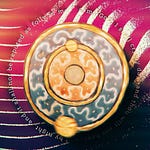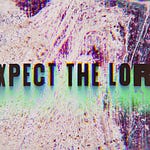Unjust witnesses rising up have asked me things I knew not. (Psalm 34:11 DR)
St. Paul speaks of how the mystery of the Gospel is a wisdom that has been hidden from the foundation of the world, but revealed in Christ, albeit in a manner which the world does not understand:
But we speak the wisdom of God in a mystery, a wisdom which is hidden, which God ordained before the world, unto our glory: Which none of the princes of this world knew; for if they had known it, they would never have crucified the Lord of glory. (1 Corinthians 2:7-8 DR)
Our Lord Himself on the cross gives voice to this as He prays for their forgiveness, saying “Father, forgive them, for they know not what they do.” They act out of ignorance, yet act sinfully nevertheless.
The Psalmist continues his prophetic utterance concerning Christ, foreseeing that He will be accused of things that He “knows not.” This ignorance on His part will be, however, not one arising from lack of knowledge but from lack of act. As St. Paul will say:
Him, who knew no sin, he hath made sin for us, that we might be made the justice of God in him. (2 Corinthians 5:21 DR)
St. Augustine considers the nature of this knowing not on the part of our Lord as arising from a lack of experiential knowledge—what he calls operation—even though our Lord was not ignorant simpliciter of what He was accused of:
But let us say to our Head, Lord, what knew Thou not? Did Thou indeed know not anything? Did You not know the hearts of them that charged You? Did You not foresee their deceits? Did You not give Yourself into their hands knowingly? Had You not come that You might suffer by them? What then knew Thou not? He knew not sin, and thereby He knew not sin, not by not judging, but by not committing...
That which is alien from operation, is alien from conscience; that which is alien from conscience, seems alien also from science. So God is said to know not, as art knoweth not faults, and yet by art faults are discovered and discerned. (St. Augustine, Expositions on the Psalms, 34, Exposition 2, 2.)
A detective like Sherlock Holmes—by the art of observation and deduction—comes to discern how a crime was committed and by whom, even though he himself has not committed any of the acts which he is investigating. He doesn’t have to commit any of the acts to understand them or know how they are brought about. His experiential ignorance does not thereby entail a theoretical ignorance.
In a similar manner our Lord certainly knew that He was being accused of blasphemy, but this knowledge was unknown to Him in the sense that He was innocent of it; that is, He knew what it means to blaspheme, but not what it was to have blasphemed by His own action.
We often speak in this manner colloquially, when we say of somebody who is always truthful that “He doesn’t know what lying means.” When we say this we are not predicating of him an absolute ignorance of lying but rather a sort of experiential ignorance of it, in that he does not practice it.
We can also speak in less flattering ways about someone who lacks a certain virtue and thus is ignorant of it. We might say, “He wouldn’t know self-control if it slapped him in the face,” which again speaks to a deeply habitual experiential ignorance.
In respect to our Lord’s Passion there is a deep irony here, for the unjust witnesses of which the Psalmist speaks were ignorant of Who our Lord was, as St. Paul mentioned earlier. Yet in their ignorance they still rise up to persecute our Lord and ultimately put him to death, which demonstrates that ignorance is in and of itself not a defense against sin. In fact, it can perpetuate and deepen sin if we do not in good faith seek the truth, for our ignorance can in a sense confirm us in our sins.
On the other side our Lord provides the model of being ignorant of sin in the sense of having nothing to do with and rejecting and avoiding temptation. He certainly understood what sin and temptation are, being tempted as we are (cf. Hebrews 4:15), yet chose to not know it:
This then to our interrogatories out of the very truth of His own Gospel doth our Head answer; when we have said, Lord, what knewest Thou not? Wherewith couldest Thou be charged which Thou knewest not? He answereth, Ungodliness I knew not, with ungodliness I was charged. Thou hast in the Gospel, if thou believe not that I knew not ungodliness, that even the ungodly themselves I know not, unto whom at the end I shall say, I know you not ; depart from Me, ye that work ungodliness [Matthew 7:23]. Did He not know those whom He condemned? or can any condemn justly, but a good cognizant? And yet a good cognizant lied not in saying, I know you not: that is, ye are not joined to My Body, ye cleave not to My Rules, ye are vicious, but I am that very Art which haveth no vice, and in which a man learneth not save not to do vice. (St. Augustine, Expositions on the Psalms, 34, Exposition 2, 2.)
By being joined to the Body of Christ we gain an acquired ignorance—so to speak—an ignorance of sin and vice in that we are enabled through cooperating with His grace to reject that sin and vice and to seek after virtue. There is another irony introduced here, for as we come to know ourselves and our weaknesses more and more through confession and penance, the more we can overcome these faults and thus acquire this experiential ignorance by ceasing to commit them.
Unlike the unjust witnesses who through ignorance rose up to accuse our Lord, we should be guileless of evil, and rise up in the grace which He has bestowed upon us. This mystery which has been hidden is revealed in our Lord, and as we are united to Him in His mystical Body we come to know what is good and receive the grace to do it so that we become ignorant of evil in our works.
I found an old medical illustration of a brain and brought it into After Effects. I then used I Ate Mushrooms to create the frenetic backgrounds in the ellipses and applied some generous color correction to them. I then drew some colored ellipses and applied some wiggle hold to the position and opacity so they would appear to jump from place to place on the brain.
I concluded by adding in some distortion effects and overall color correction.
Enjoy.
Unjust witnesses rising up have asked me things I knew not.
(Psalm 34:11 DR)
View a higher quality version of this gif here:










